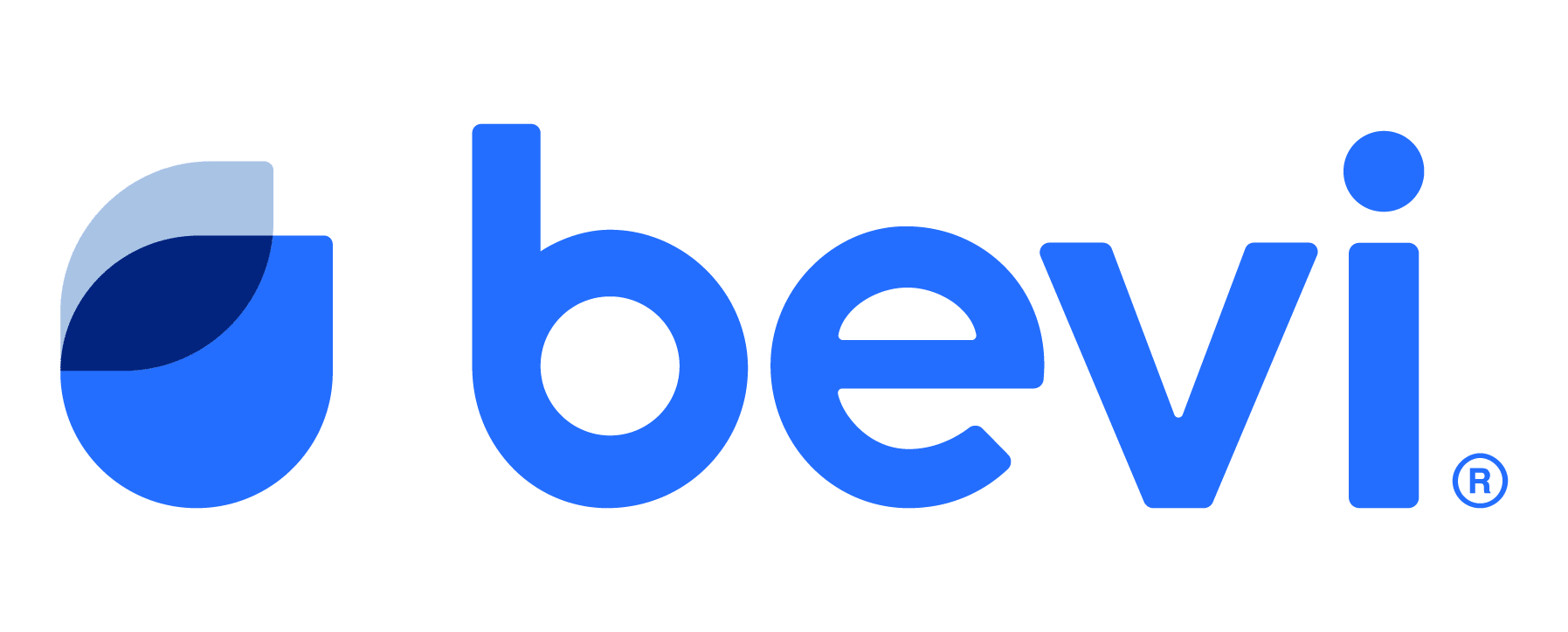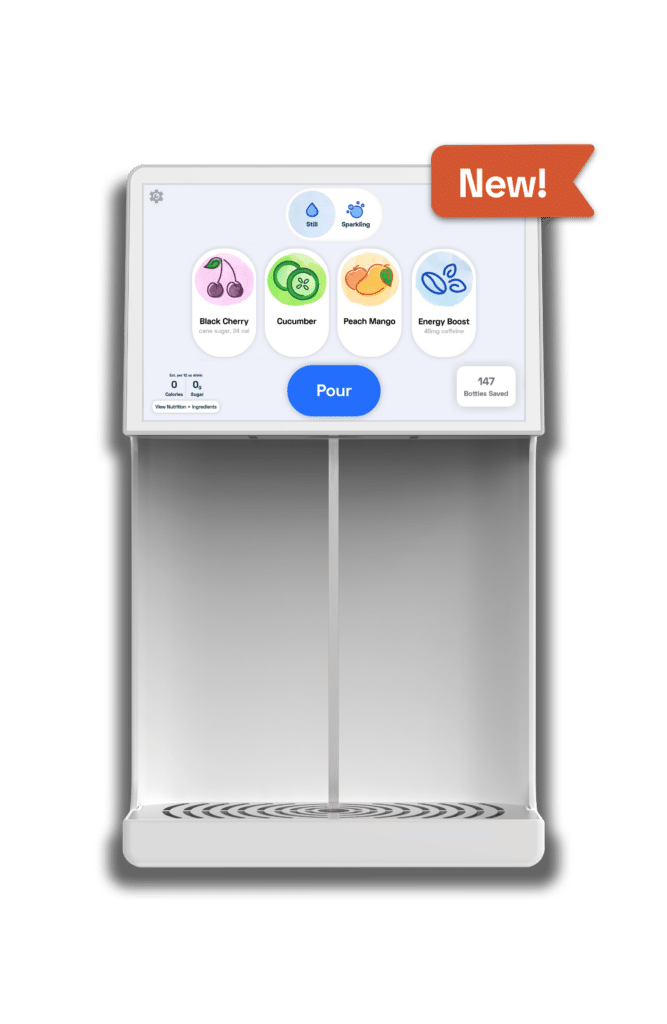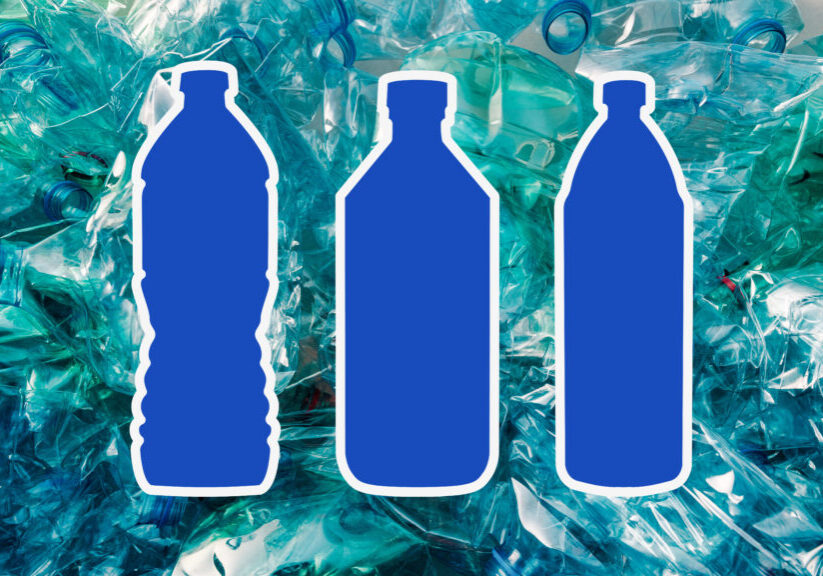Last updated July 2, 2025.
With plastic particles showing up everywhere—in our food, our drinks, even the air we breathe—you might be wondering: is there any bottled water without microplastics?
If you drink water from a plastic bottle, you are drinking plastic.
Not fear-mongering. Not hyperbole. Not facetious. Fact.
How? All plastic degrades. As it degrades, it sheds. Plastic sheds from the moment your water is bottled to when it shows up on the store shelf. Plastic from a standard single-use, liter-sized bottle sheds. Tritan copolyester, a more durable type of plastic used to make popular reusable water bottles, like Nalgene’s iconic 32 oz. wide mouth, sheds. (If you wash your reusable plastic bottle in the dishwasher, the heat and water pressure will cause it to shed even more the next time you fill it up.)
Yes, even your reusable plastic bottle adds microplastics to your water.
As your reusable plastic bottle is jostled around in your backpack, heated up by the sun, and plopped onto your kitchen table, another round of imperceptible plastic pieces are knocked loose.
For real, even cracking the lid on a bottle of water releases more microplastics into your beverage.
This isn’t a marginal amount of shedding. According to research released in January 2024, a single one-liter plastic bottle of water contains 240,000 plastic particles. For context (and this is wild context), back in 2018, research conducted with still fairly state-of-the-art imaging technologies identified only 325 plastic pieces in a liter bottle. Still a lot of plastic, yes, but a staggering 739 times less than what we’re actually getting in that volume of water.
And it’s not that the material is deficient, that the plastic used for single-use bottles got worse. It’s that the tools for imaging plastic particles in the water from a plastic bottle got more advanced and more able to pick up on exceptionally small pieces, known as nanoplastics, along with the slightly-bigger-but-still-so-so-small microplastics.
If the detection has improved this much in seven years, what do you think we’ll be seeing in another seven?
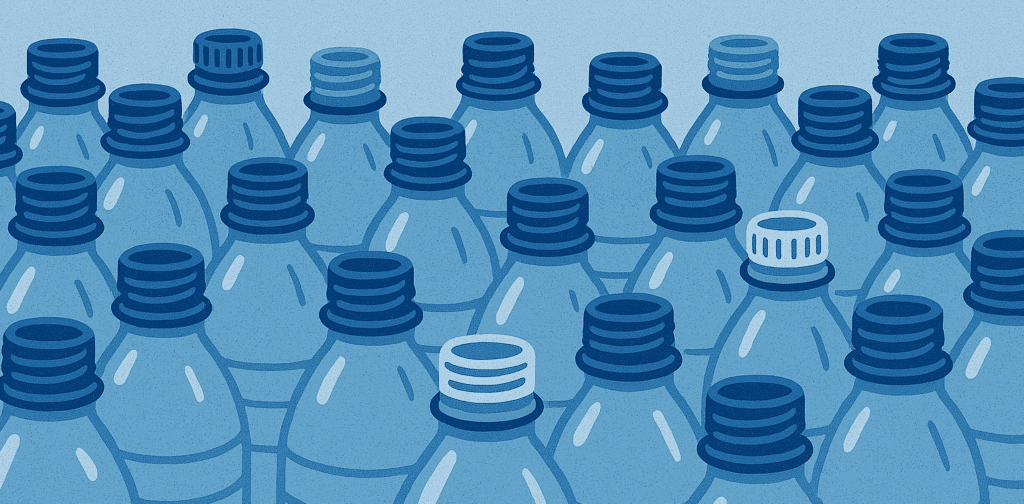
BPA-free, dye-free, recyclable, spring, distilled, alkaline, any kind: If it’s coming from a plastic bottle, the water has microplastics in it.
While research is still catching up, early studies suggest that microplastics could contribute to inflammation, hormone disruption, and even immune system impacts. You probably don’t want to until the long-term effects of drinking bottled water are known for certain, right? Better to cut it out now.
What about aluminum bottles? Do they have microplastics too?
Aluminum and glass bottles are a step in the right direction. Since they’re not made of plastic, they won’t shed plastic into your drink. But they can’t completely solve the problem either, since the filtration methods used to bottle or can any kind of water for single-use—whether plastic, aluminum, or glass—is likely not up to par with what you want to be putting in your body.
Studies have found that tap water contains a number of microplastics, which is bad news for bottled water. Because, well, bottled water is mostly overpriced tap water. The leading bottled water brands—including Coke’s Dasani and Pepsi’s Aquafina—are nothing more than municipal tap water run through a filter that is likely not adequate for removing these plastic particles.
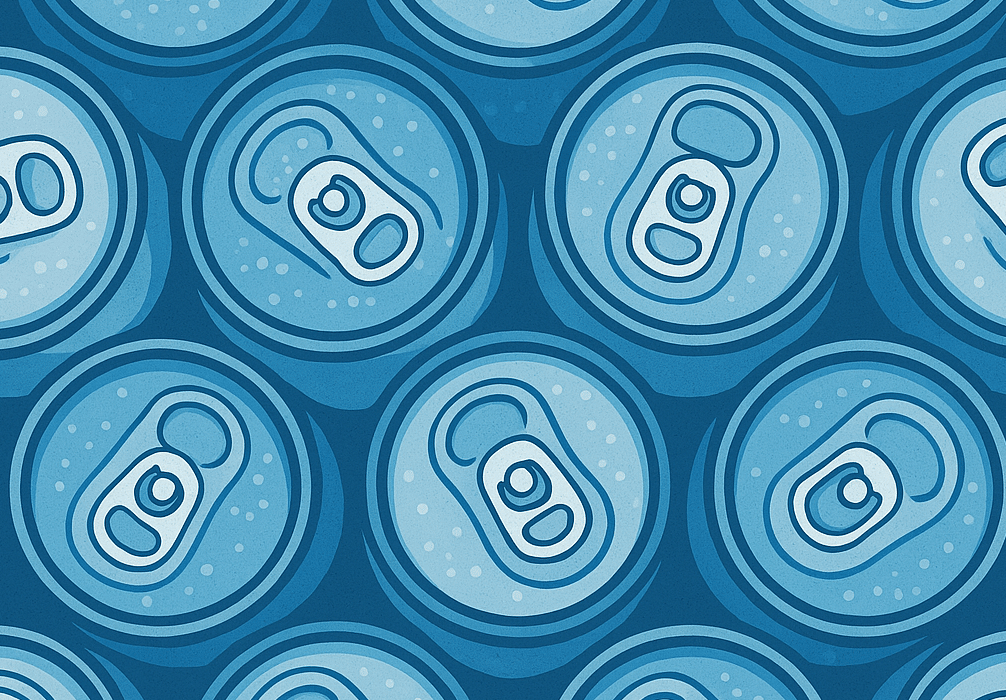
The bigger picture. Also worth mentioning that, even if aluminum and glass single-use bottles cut down your exposure to microplastics, they still carry an environmental cost. Mining. Manufacturing. Transport. Refrigeration. And despite all the “infinitely recyclable” claims, most of these bottles end up as litter, in landfills, or washing away into our waterways, going along a potentially length but inarguably inevitable journey to the ocean.
So what’s the solution to this microplastics problem? Filter water at the source. Bottle it yourself.
Disposable water bottles may be a dead end, but the trip’s not over. There’s a different on-ramp you can take instead. You stop buying the problem in a container. You filter water at the source. You pour it into your own reusable stainless steel bottle. You never look back.
Find the right filter. High-quality water filtration is your first line of defense against microplastics. Most basic filters do an okay job—they take the edge off the chlorine, maybe improve the taste—but they’re not built to deal with what we’re facing now: microplastics, nanoplastics, the invisible grit that’s made its way into one of the most essential thing we consume.
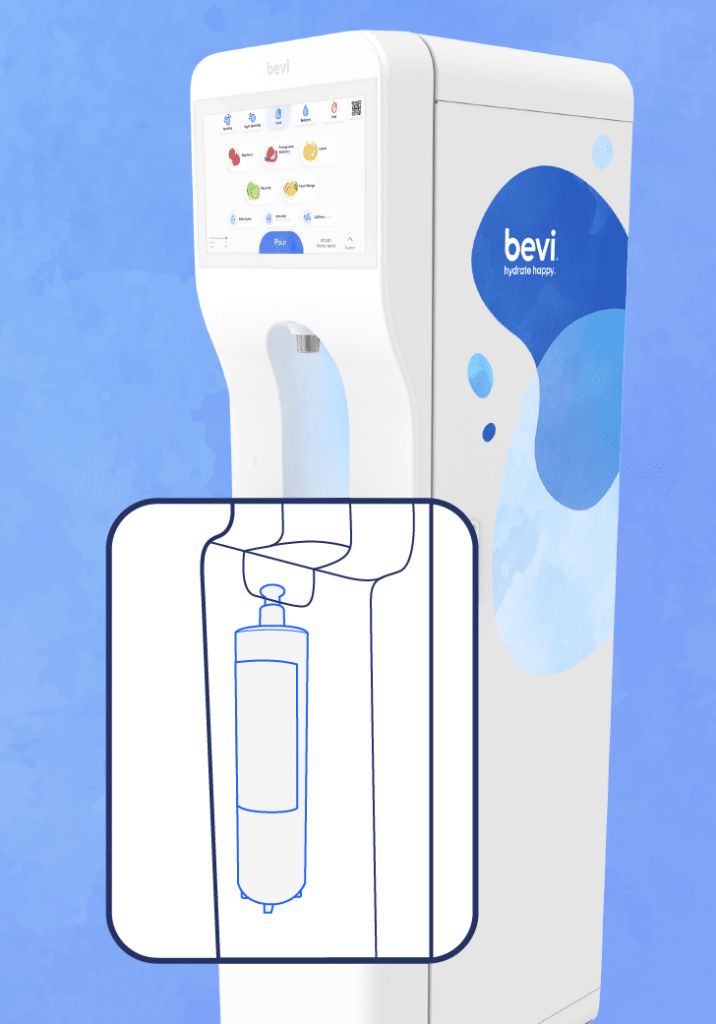
That’s why Bevi water cooler machines were designed the way they were, with an advanced filtration system that houses a recommended, commercial-grade carbon filter certified to remove 99.9% of microplastics from tap water. Every gallon of Bevi water you drink instead of bottled water saves your body from ingesting an average of 900,000 plastic pieces. Not bad, as they say.
When you don’t have access to a Bevi machine at work, the gym, the cafeteria, or the brewery, and you’re at home looking for a glass of water, you can turn to a premium pitcher with a replaceable filter. LifeStraw makes a (relatively) affordable at-home filtrating pitcher that can remove not only microplastics from your drinking water, but a range of other chemicals and heavy metals.

How to make your hydration setup truly plastic-free:
- Look for the certification: Not all filters remove microplastics. Find one that’s certified for its removal, like those filters that Bevi recommends for use in our water coolers.
- Source wisely: When on the go, choose hydration stations with proven filtration, like Bevi machines, instead of opting for water that’s bottled in plastic.
- Go stainless steel or glass for your bottle: These materials don’t leach or degrade like plastic. Also, make sure you’re using reusable bottles most of the time.
- Make it last: Treat that reusable bottle like it’s an extension of yourself and wash it by hand regularly, preferably daily. Consider it a fundamental part of your everyday carry, like a phone, wallet, or set of house keys. And treat yourself to filtered water every day.
